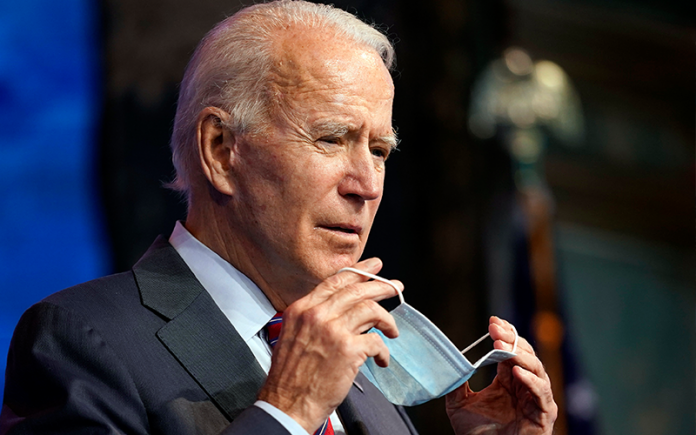
WASHINGTON: Promoters of Britain’s divorce from the European Union had said they would revitalise bonds with the US, where President Donald Trump, with his shared disdain for multinational bodies, seemed the perfect partner.
Come January, Britain both definitively leaves the 27-nation bloc and will deal with a new US president, Joe Biden, who prioritises the EU and shares none of the Brexiteers’ romanticism about going it alone.
Biden, an Irish-American who will be the second Catholic president, had already warned Prime Minister Boris Johnson not to jeopardise peace in Northern Ireland by erecting a hard border between the British-ruled province and EU member Ireland.
Even as trade talks dragged on, Britain reached a deal with Brussels on special arrangements for Northern Ireland – a sign to observers that Biden’s election had already made an impact.
“It was recognised in London that if you messed up the Northern Irish border, it would have been absolutely poisonous for the US-UK relationship,” said Jacob Kirkegaard, a senior fellow at the German Marshall Fund of the US.
Johnson’s Conservative government has emphasised issues on which it enjoys common ground with Biden, including fighting climate change, and announced a historic boost in military spending.
Kirkegaard said Britain was hoping to punch above its weight as a strategic security partner of the US, especially at a time of high tension with China, but said Biden could find similar capabilities in the much larger EU, where France is a major military player.
“Brexit Britain has made itself nice to have but no longer strictly necessary to have on board for the US,” he said.
‘I’m Irish’
Biden is surrounded by Barack Obama’s former aides who have not forgotten Johnson’s 2016 quip, in line with thinking on the US far-right, that the then US president had an “ancestral dislike” of Britain because of his “part-Kenyan” heritage.
While the racial undertones differ markedly, Biden has himself said, at least partly in jest, that his Irish ancestry soured him on Britain.
In footage that went viral after his election, Biden is seen walking on as a BBC journalist tries to ask him a question, responding, “The BBC? I’m Irish!” before flashing a friendly smile.
“Clearly I think there is a sense among some people in Biden’s orbit that Brexit was a completely misguided policy and Prime Minister Johnson has been too close to Trump and therefore there’s a need to downplay this relationship a little bit,” said Erik Brattberg, director of the Europe program at the Carnegie Endowment for International Peace.
But he said that Biden recognises the broader importance of ties with Britain and would not be a flip image of Trump, who shattered diplomatic protocol by belittling allied leaders, especially German Chancellor Angela Merkel.
“Trump’s approach was more about fomenting divisions within Europe, whereas Biden will see his legacy as trying to heal some of the divisions,” Brattberg said.
Little hope on trade
Britain has raced to seal a US trade accord while exiting the EU, but lawmakers from Biden’s Democratic Party had warned that a deal was off so long as Northern Ireland was in question.
Even with Northern Ireland’s status resolved for now, any accord could be deeply unpopular with the British public due to lower US animal-welfare standards for meat and likely higher prices on medicine.
Biden has indicated he will not prioritise sweeping new trade deals and, without congressional action, on July 1 he will lose the authority to fast-track negotiations.
“It would be very hard if not impossible for the US to enter into an agreement with the UK,” said Jennifer Hillman, a senior fellow at the Council on Foreign Relations, estimating that Biden would need to complete talks by April.
The 2021 calendar will nonetheless be fortuitous for Johnson as a major UN climate conference is due in November in Glasgow, where Biden’s incoming envoy John Kerry has already vowed to encourage bold action.
Despite his bonds with Trump, Johnson backs action on climate change and will welcome the expected US return to diplomacy with Iran and global Covid-19 coordination.
“On paper, the British Conservative Party is far closer to the Democratic Party than Donald Trump’s Republican Party,” Kirkegaard said.
“But all of that would mean nothing if there was a hard border in Northern Ireland.”



